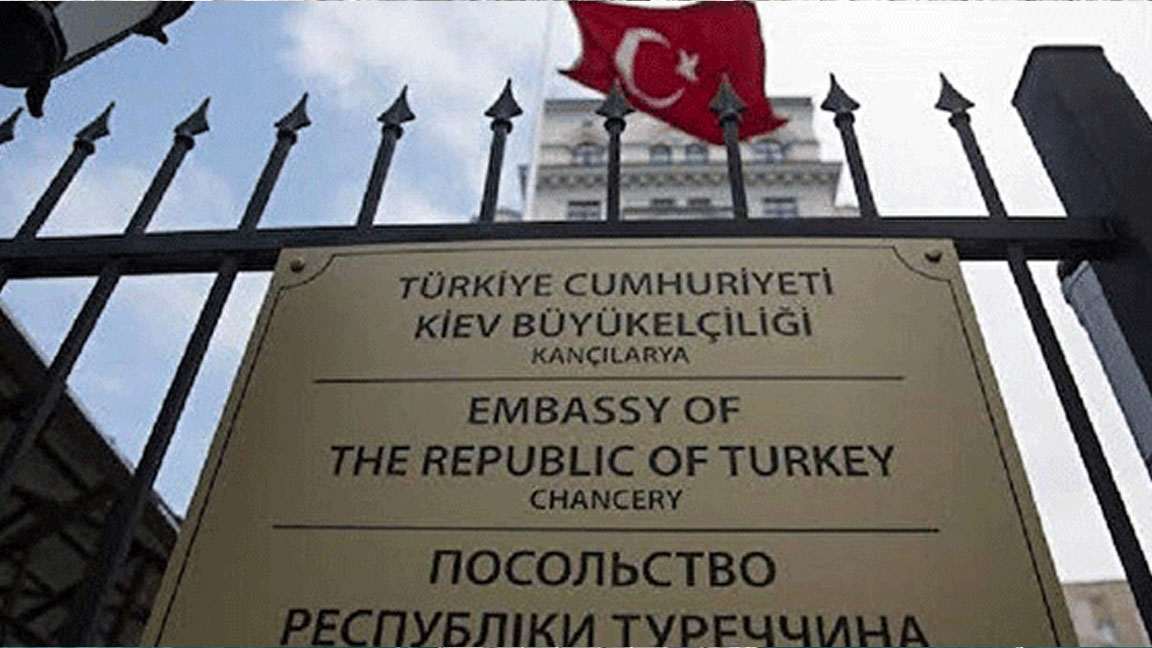Bünyamin Tekin
Turkey has become the third largest diplomatic player in the world, trailing behind only superpowers China and the United States, in the latest edition of the Global Diplomacy Index.
The index, a comprehensive analysis by the Lowy Institute, offers new insights into the strategic use of diplomatic networks by 66 countries and territories worldwide.
China continues to lead the world with 274 diplomatic posts, closely followed by the United States with 271.
The competition between these two nations is a flashpoint in global diplomacy, with China maintaining its dominance in regions such as Africa, East Asia and the Pacific, while the United States maintains its lead in the Americas, Europe and South Asia.
Turkey has risen quickly to become the world’s third-largest diplomatic player in 2023, overtaking traditional diplomatic heavyweights Japan and France, according to the index’s key findings.
Ankara operates 252 posts and has added 24 to its network since 2017 and 11 since the last edition of the index in 2021.
Many of Turkey’s new posts are in the Middle East and Africa, reflecting a diplomatic push into regions of interest to Ankara.
Turkey’s rapid rise to the top three with 252 posts worldwide underscores its ambitious foreign policy and strategic interests, particularly in the Middle East and Africa, according to former Turkish diplomat Haşim Tekineş.
Tekineş, who shares his insights on Turkey, the Middle East and Turkey-Gulf relations on platforms such as InstituDE and War on the Rocks, spoke to Turkish Minute about the index.
“This policy of expansion started in the 2000s,” Tekineş said.
“The government has reaped the benefits in many areas. The increase in the number of diplomatic missions, the expansion of foreign organizations of institutions such as TİKA [Turkish Cooperation and Coordination Agency, a state-run aid agency], the increase in the number of attaché offices and, in general, the increase in soft power capacity have given Turkey an important influence abroad,” Tekineş underlined.
“Although Turkey’s relations with Western countries have deteriorated due to human rights issues and authoritarianism, Turkey still has a strong influence in Africa, Latin America, the Pacific and the Middle East. And diplomatic missions are an important instrument of this policy,” he added.
Turkey, once praised for its blend of Islam and democracy, has seen increasing repression, particularly after a coup attempt in 2016, which has served as justification for a crackdown on civil society and the consolidation of power in the hands of President Recep Tayyip Erdoğan. This shift has weakened the separation of powers and the right to political participation.
“Especially in the Third World, the colonial past, the ambivalence and the lack of interest of Western countries in regional issues open up space for new actors such as Turkey,” Tekineş highlighted.
“These relations give Turkey foreign policy weight and increase the volume of economic investment and bilateral trade and create a market for the products of the Turkish defense industry. Diplomatic missions are also an important pillar of this expansion.”
However, the Turkish network is still very Eurocentric, according to the key findings of the index, with 102 (40 percent) of the total foreign representations located in this region.
The index also indicates the consequences of Russia’s war in Ukraine, which has led to a significant reduction in Moscow’s global diplomatic reach. The conflict has resulted in the closure of Russian missions abroad and the expulsion of Russian diplomats from several countries, representing a significant setback for Russian diplomacy.
Against the backdrop of these developments, middle powers such as India have seen remarkable growth in their diplomatic networks, signaling a more multipolar world order.
India, along with Turkey, is among the fastest-growing diplomatic networks, reflecting its growing economic ties with Africa and its ambition to take a leadership role in the global South.
The report also sheds light on diplomatic backsliding, with Taiwan losing ground to China in terms of formal recognition. Nevertheless, Taiwan maintains a network of unofficial posts that play a crucial role in promoting its interests abroad.
European cities continue to be centers of diplomatic activity, with Brussels, Paris, Geneva and Vienna along with New York topping the list of cities with the most foreign missions. There is a resurgence of diplomatic missions in Damascus and a large number of closures in Kabul and Khartoum after the Taliban takeover and the conflict in Sudan.
The number of diplomatic missions in the Pacific islands has increased significantly due to geopolitical competition. This increase reflects the strategic importance of the region and the ongoing efforts of major powers such as the US and China to expand their influence there.


